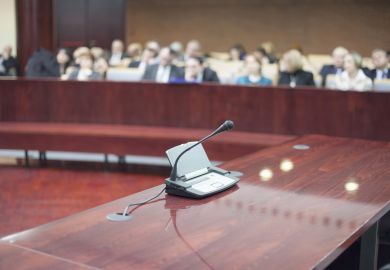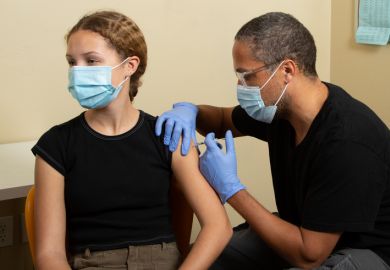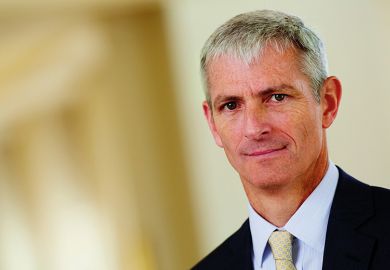As new Covid variants emerge and vaccination campaigns struggle, US universities are gradually conceding that a growing share of their autumn classes will remain online.
Similar to last autumn, many universities aren’t being fully clear on their plans, partly respecting ongoing shifts in the course of the pandemic and partly reflecting a fear of alienating students eager for in-person formats before they can arrive.
Among those that have offered estimates, the expected percentages of online courses vary widely, with larger institutions appearing more likely to be committed to in-person teaching.
Those on the low end include a series of non-residential two-year institutions. Among mid-sized institutions, California’s 8,000-student Humboldt State University has announced that 40 per cent of its classes will be held online. Bigger universities, for now, are suggesting that full or nearly full campuses will be the norm. The University of Minnesota Twin Cities has said that 80 per cent of its classes will be in person.
Such ambitious promises are getting pushback from faculty. Minnesota faculty are among many protesting that their institutions – by pushing ahead with in-person classes but not requiring vaccinations – seem more concerned with protecting enrolment and revenue than ensuring health and safety.
Only 44 per cent of Americans aged 18 to 24 are fully vaccinated, according to recent data from the US Centers for Disease Control and Prevention. Those rates are likely higher on college campuses, but that’s not enough comfort for many faculty, said Sue Estroff, a professor of social medicine at the University of North Carolina at Chapel Hill (UNC).
After last autumn’s embarrassment of shutting down its campus within days of opening – with 130 infections in less than week – UNC has made clear it again plans regular in-person classes, even without any mandate that students be vaccinated.
UNC professors and administrators “have very different ideas about campus and faculty voice and autonomy than at any time I can recall in four decades here”, Professor Estroff said.
Other campuses with similar tensions include Louisiana State University (LSU), where several hundred faculty have demanded a vaccine mandate and the option for instructors to teach online if they feel unsafe.
LSU’s president, William Tate, pushed back, telling a faculty meeting that some people “have their own risk-mitigation strategies, and we have to respect that”.
His critics include Robert Mann, an LSU professor of mass communication, who was personally comfortable teaching now that he’s vaccinated but understood that others – such those who are immunocompromised or have vulnerable family members – may not be.
Professor Mann said significant amounts of online teaching could hurt LSU revenue by driving down enrolment and threatening the autumn football season.
“The school seems to be driving a pretty hard bargain” on the question of allowing online instruction, Professor Mann said. “It’s about money, and about football.”
The US secretary of education, Miguel Cardona, told Times Higher Education that he understood the importance of in-person teaching but also wanted institutions to require vaccines and to consider the concerns of faculty.
“The flexibility of the colleges is critical,” Dr Cardona said, responding to questions from THE at a media briefing hosted by the National Press Foundation. Normal class environments are the long-term goal, but more immediate needs centre on getting students and faculty reconnected safely, the secretary said.
“And in many cases,” he said, “the best way to do that is to offer online courses.”
Register to continue
Why register?
- Registration is free and only takes a moment
- Once registered, you can read 3 articles a month
- Sign up for our newsletter
Subscribe
Or subscribe for unlimited access to:
- Unlimited access to news, views, insights & reviews
- Digital editions
- Digital access to THE’s university and college rankings analysis
Already registered or a current subscriber?








